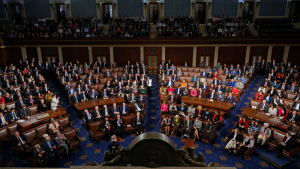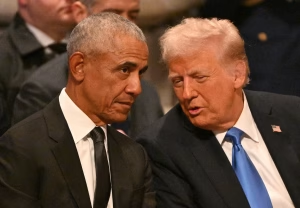Boston’s Legal Community Braces for Long-Awaited Verdict
After years of debate, legal scrutiny, and intense public speculation, a high-profile Massachusetts case has finally reached a decisive point. The state’s judiciary has delivered its findings in an investigation that many say exposed deep tensions between the courts and federal immigration authorities.
For months, the case has stirred conversations in Boston courtrooms, divided public opinion, and fueled national headlines. It involves one of the state’s sitting judges, a courthouse incident, and the question of whether judicial discretion crossed into prohibited territory.
While the story has taken many turns since it first emerged, the latest decision now brings clarity—though not without controversy.
How a Routine Hearing Turned Into a Political Firestorm
The incident traces back several years to a courtroom in Newton District Court, where Judge Shelley Richmond Joseph presided over what appeared to be a standard criminal hearing. The defendant, a man identified as Jose Medina-Perez, faced drug charges and an outstanding fugitive warrant from Pennsylvania.
At the time, a federal immigration officer was stationed outside the courthouse. The officer planned to take the defendant into custody immediately following his release on state charges.
However, what unfolded inside that courthouse quickly became the center of a national debate. The events that followed — brief, confusing, and partially unrecorded — would later fuel claims that the judge had assisted in an illegal act.
A Mysterious 52 Seconds
During the hearing, court audio captured Judge Joseph ordering the recording system to be paused. For 52 seconds, the official record went silent. When the system resumed, the judge announced her decision to release the defendant.
What happened in that gap became the focus of intense federal scrutiny. Prosecutors alleged that during the off-record moment, Joseph and others discussed how to allow the defendant to leave the courthouse without encountering the ICE agent waiting in the lobby.
Moments later, according to the federal complaint, the defendant and his attorney went downstairs, where a court officer opened a secure exit door leading outside. The man slipped away — and federal agents waiting out front never saw him again.
The Federal Case That Followed
The U.S. Department of Justice swiftly launched an investigation. In 2019, prosecutors charged Judge Joseph with obstruction of justice and aiding an illegal escape — extraordinary accusations against a sitting state judge.
The case was unprecedented. No Massachusetts judge in recent memory had faced federal criminal charges over courtroom conduct. Critics called it political retribution; supporters of federal immigration enforcement called it justice delayed.
But the case would not last. By 2022, federal prosecutors dropped the charges after Joseph agreed to cooperate with the Massachusetts Commission on Judicial Conduct (CJC) and provided key admissions about what transpired that day.
The question of criminal guilt was settled. But a new question emerged: what disciplinary consequences, if any, should follow?
The State’s Final Judgment
After months of review, Hearing Officer Denis J. McInerney released the state’s final findings. His conclusion surprised many observers.
“I find that Judge Joseph did not know about — much less authorize — the escape plan and did not mislead court authorities following the incident,” McInerney wrote.
“However, I find that she inadvertently created the appearance of impropriety and bias.”
McInerney determined that Joseph did not actively participate in helping the defendant evade arrest. Rather, he found that she permitted a private attorney-client conversation, unaware of what would follow.
Still, the report was not without criticism. McInerney faulted Joseph for holding an off-the-record sidebar — a decision he said violated judicial transparency and gave the public reason to doubt her impartiality.
His recommendation: a public reprimand, the lightest form of formal discipline a judge can face without suspension or removal.
Inside the Courtroom Defense
During the conduct review hearing, Joseph’s legal team painted a vivid picture of a respected jurist caught in a political storm.
Her attorney argued that while the public viewed her as either a villain or a hero, neither description fit the facts.
“If you were to walk down the street and take a survey, everyone would say Judge Joseph let an illegal immigrant out the back door,” her attorney told the panel. “Half would call her a criminal, half would call her a hero. But she definitely became a symbol for something much larger than herself.”
Her defense emphasized that no one ever proved intent — that the judge’s actions stemmed from a misunderstanding, not misconduct.
A Divided Public Reaction
Reaction across Massachusetts has been split.
Critics of the decision argue that allowing any appearance of bias undermines trust in the courts. Others believe Joseph’s case highlights the politicization of judicial conduct and the difficult balance between state authority and federal enforcement.
Immigration advocates praised the report as a fair outcome, saying it confirmed what they had long believed — that Joseph acted within her duties and did not knowingly defy the law.
Law enforcement groups, however, voiced frustration. Many officers said the case sent a “dangerous message” that public officials could act recklessly and face little consequence.
The Incident That Still Echoes
What remains most controversial is not the escape itself but the symbolism behind it.
To some, it represented judicial compassion. To others, judicial defiance.
The image of a defendant slipping quietly through a courthouse door became a flashpoint in national conversations about immigration, local authority, and the rule of law.
Even years later, the 52 seconds of silence in that courtroom still define the narrative — a pause that left a permanent mark on Massachusetts’ judicial history.
A Cautionary Tale for the Bench
The case of Judge Shelley Richmond Joseph now serves as a cautionary tale for judges across the country. It underscores the importance of transparency, documentation, and the avoidance of even the perception of bias.
McInerney’s ruling reaffirmed that judicial integrity depends not only on intent but also on public confidence. Even an innocent act, he wrote, can have lasting repercussions if it “creates the appearance of impropriety.”
For Joseph, the reprimand may end years of public scrutiny, but the broader debate — over how judges navigate politically charged cases — is far from over.
What Comes Next
With the CJC’s recommendation now public, Massachusetts court officials are expected to issue a formal reprimand in the coming weeks. The decision does not remove Joseph from the bench, though it will remain part of her official record.
Observers say the conclusion closes one of the most dramatic chapters in the state’s modern judicial history. But it also leaves behind questions about how far courts can — or should — go in managing the tension between state justice and federal enforcement.
For now, Judge Joseph returns to her duties under a cloud of scrutiny, her name forever linked to one of Boston’s most controversial courtroom moments.

James Jenkins is a celebrated Pulitzer Prize-winning author whose work has reshaped the way readers think about social justice and human rights in America. Raised in Atlanta, Georgia, James grew up in a community that instilled in him both resilience and a strong sense of responsibility toward others. After studying political science and creative writing at Howard University, he worked as a journalist covering civil rights issues before dedicating himself fully to fiction. His novels are known for their sharp, empathetic portraits of marginalized communities and for weaving personal stories with broader political realities. Jenkins’s breakout novel, Shadows of Freedom, won national acclaim for its unflinching look at systemic inequality, while his more recent works explore themes of identity, resilience, and the fight for dignity in the face of oppression. Beyond his novels, James is an active public speaker, lecturing at universities and participating in nonprofit initiatives that support literacy and community empowerment. He believes that storytelling is a way to preserve history and inspire change. When not writing, James enjoys jazz music, mentoring young writers, and traveling with his family to explore cultures and stories around the world.









